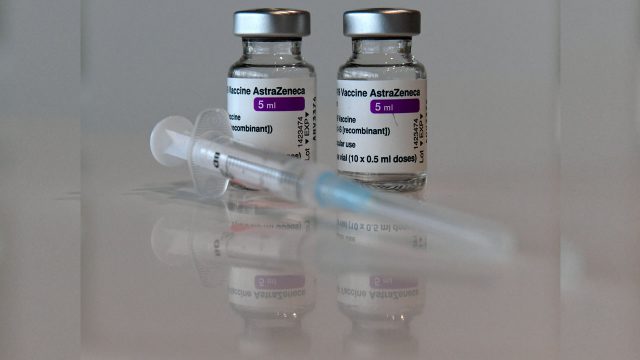Experts disclosed yesterday, while giving an update on the COVID-19 situation in Africa, where more than 3.2 million people have tested positive, that the third wave has hit East Africa.
New infections has risen in Europe, Ethiopia, Kenya, and South Africa.
The African Union (AU)’s Centre for Disease Control and Prevention reported an increase in a number of countries with increased infections. The latest data on the AU CDC portal showed that almost 95,000 people had died in Africa after contracting the coronavirus, while close to 2.8 million patients have recovered on the continent.
Director of the centre, Dr John Nkengasong, said yesterday that the third wave was upon us. “When you look at East Africa, you see that clearly there has been an increase of 98 per cent over the last four weeks. It is fair so say that East Africa, as a whole community is now going through the third wave. In Kenya, new infections had shot up by 400 per cent over the past few weeks with its public facilities overwhelmed.”
Also, many countries across Europe are ramping up restrictions to stem a new wave of COVID-19 infections that has once again left hospitals struggling to cope. Due to the spring surge in the pandemic, propelled mainly by the spread of new more contagious and more deadly variants, European countries have been forced to impose new measures or delay the easing of restrictions. It also seems inevitable that COVID-19 passport would soon become compulsory for international travels.
The situation has raised lots of questions like: Is there a possibility of a third wave of COVID-19 in Nigeria? What are efforts in place to contain the disease? Can Nigeria’s fragile health system and lean budget for health withstand this? When is the next batch of COVID-19 vaccines coming into Nigeria to vaccinate more people?
A virologist, vaccinologist and leader, COVID-19 vaccine task team of the African Vaccine Manufacturing Initiative, Dr. Simon Agwale, said “There are no enough COVID-19 vaccines in Nigeria to stop a third wave, so it is possible that Nigeria may experience third wave of COVID-19 pandemic. In the absence of enough vaccines to vaccinate at least 70 per cent of our population, the magnitude of the surge will depend on the willingness of the public to abide by physical distancing and other non-pharmaceutical interventions and the extent to which variants of concern emerge.”
Agwale, who is also a Chief Executive of Innovative Vaccines Limited, Abuja and Innovative Biotech USA Incorporated, said the right thing to do is to build a resilient health system for proper management of patients and conducting clinical trials of new and repurpose drugs so that more lives will be saved. He said at least those that recover would build a substantial immune response that could protect them from re-infection.
The vaccinologist said recent studies have shown that reinfections are rare in people below 65 years of age and more in people above 65 years. He said this means that the country should take care of the elderly population and it is good that they are prioritised to receive the vaccines. Agwale said, across the globe, Severe Acute Respiratory Syndrome Coronavirus type 2 (SARS-CoV-2) that causes COVID-19 is evolving ways to evade the immune system and become more infectious.
He said the implications are that Nigerians are going to start seeing more cases because the virus has basically gained an ability to be transmitted from one person to another more efficiently.
Agwale added: “Secondly, we would see that the current diagnostics, drugs and vaccines could be less effective. The best way to prevent the emergence of variants is to stop them from spreading by implementing mass vaccinations. This again is not feasible because of acute shortage of vaccines globally and the situation may not improve in the next couple of months. In the short term, we’ll have to depend on getting existing vaccines, but there is no guarantee that we’ll get enough doses for our people because the wealthy countries have already bought most of the doses.
“We have to start working on manufacturing our vaccines and this is the best way that we can guarantee enough doses for our population. I am surprised that we are still not taking this seriously because we can make this happen for Nigeria.”
One person reportedly died in the country yesterday after contracting the coronavirus, while 214 tested positive for the disease. According to figures released by the Nigeria Centre for Disease Control (NCDC), total fatalities rose to 2,031 as of Tuesday, with confirmed infections at 162,076 after over 1.7 million tests were conducted in the country of more than 210 million people since March last year.






